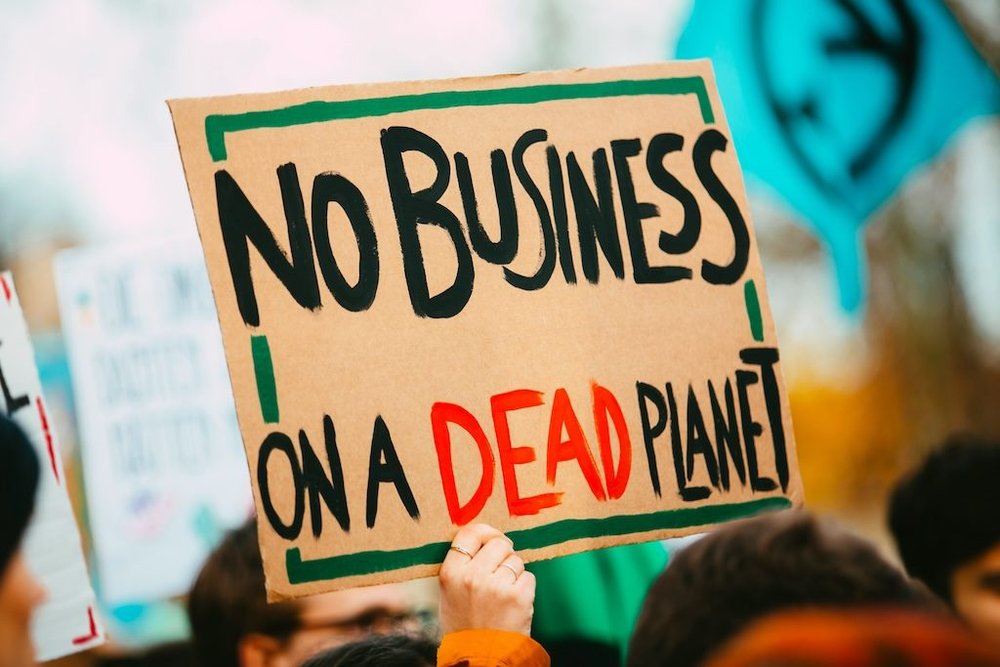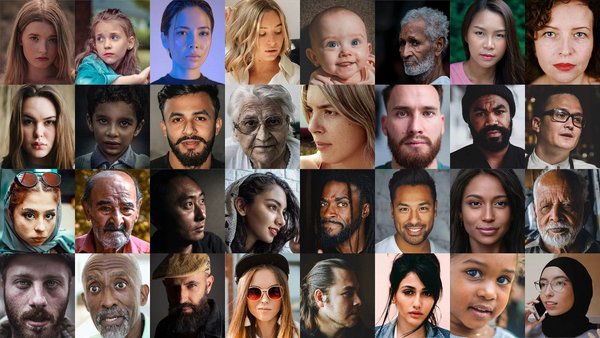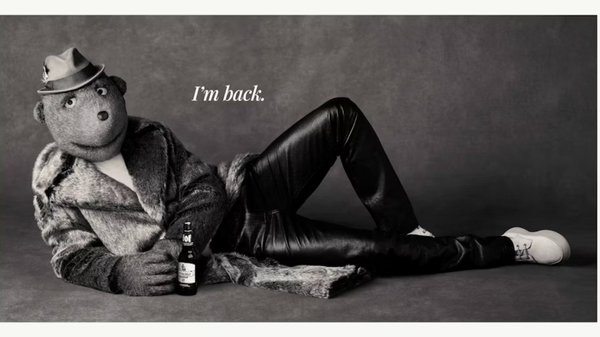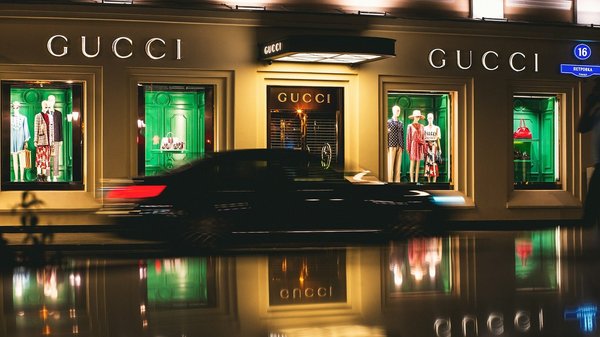Why is no one in advertising talking about sustainability anymore? /
Last year was the hottest on record, and climate disasters claimed tens of thousands of lives and cost billions of dollars. So why does it feel like the climate crisis has fallen off marketers’ agenda?
Phoebe O’Connell
/
Photo by Kelly Sikkema on Unsplash
One topic was conspicuously absent when we polled and interviewed over 100 ad-industry leaders for this year’s annual Radar report: the climate crisis.
Despite being one of the leading topics of conversation among last year’s interviewees, sustainability (one of the most-searched terms on Contagious’ intelligence site, IQ) seems to have totally dropped off the radar.
And although we spoke to a relatively small sample of people, we aren’t the only ones noticing a drop-off in climate crisis conversation. Reporting on Davos 2024, New York Times journalist David Gelles wrote, ‘Climate change has largely been relegated to the back burner’ in favour of ‘A.I. and the possibility of another Trump presidency’.
A handful of global brands abandoned their sustainability targets last year. Shell, for example, quietly ended its carbon offsets project, with no mention of its prior pledge to become a net-zero emissions energy business by 2050.
And in the US, there has been a growing conservative backlash against ESG (Environmental, social, and corporate governance) policies. Last year, according to law firm Simpson Thacher & Bartlett, mentions of ESG on earnings calls dropped to their lowest level since 2020, while governors from 19 US states joined an anti-ESG coalition aimed at limiting ESG-based investing.
Leo Rayman, EdenLab

Photo by Mika Baumeister on Unsplash
It’s not as if the climate crisis is any less urgent. July 2023 was the hottest month ever recorded, climate-related disasters last year claimed at least 12,000 lives (up 30% from 2022), and greenhouse gas concentrations in Earth’s atmosphere reached a new high — so why does it feel like sustainability has been deprioritised? And does the lack of advertising initiatives reflect a downturn in investment and action?
We put our theories to Leo Rayman, founder & CEO of green growth consultancy EdenLab, Matt Bourn, director of communications at the Advertising Association, and Ollie Joyce, chief transformation officer at Mindshare.
Is the ad industry scared of the anti-ESG backlash in the US?
‘ESG has been devalued [in the US] because it's so tightly associated with wokery,’ says Leo Rayman. ‘And so in some instances, there's a kind of weariness in talking about it.’ However, he’s yet to see that trend in practice, adding that his own clients’ attitudes towards sustainability have not been influenced by the anti-ESG movement. The impact of the backlash is overstated, agrees global chief transformation officer at Mindshare, Ollie Joyce. ‘I think it has been a factor in a lot of diversity, equity and inclusion initiatives, and less of a factor in terms of sustainability,’ he says. ‘I certainly wouldn't put it in the top five of issues that are holding [sustainability] back.’
Has adland got bored with sustainability and moved on to the next fad?
It might look that way, says Rayman – ‘Boards got slightly obsessed with [sustainability] for a bit.’ But just because the hype has been transferred onto something new (generative AI), that doesn’t mean businesses have moved on. ‘The conversation we're having with companies and agencies now, it’s proper business change stuff that is big and fundamental and deep.’ Sustainability is still a top-three priority for businesses, agrees Matt Bourn, at least among the companies that are members of the AA. ‘There's no denying that we've got a battle on our hands because of other things,’ he says. ‘We can't accept that there isn't room to talk about this as well.’ It’s natural that after the initial buzz subsided, companies would realise ‘how hard it is, and how long it takes and how complex some of the issues are,’ says Joyce. ‘If last year everyone was excited, I think we're now down into the reality of [sustainability].’
Are brands put off by the threat of greenwashing accusations?
The UK’s Advertising Standards Association (ASA) brought in stricter greenwashing rulings last year, hitting energy companies Repsol, Shell and Petronas with claims of omission of information and misleading customers. The stricter judgments are leading some companies to under-report or hide their sustainability work to evade scrutiny – otherwise known as ‘greenhushing’. The problem is prioritising perfectionism over progress, says Rayman. ‘The sad thing from my point of view is that good things are not being talked about because they're worried about not being perfect and getting attacked. That leads us to not sharing experiments or failures.’ There needs to be space for improvement, agrees Bourn. ‘There's not a lot of room for good or better, there's only perfect or terrible. And if we're going to learn from each other, as a global industry, then “better each year” is how we're going to do it.’ That’s why the cynical response to Apple’s Mother Nature film was disappointing, says Joyce. ‘If you don't have the most important brands on the planet standing up and making statements like that, and saying, look, it's not perfect, but we are driving progress, then I think we’re in a much worse place.’
Aren’t marketing and sustainability ultimately at odds because the former exists to create consumption demand?
If the ad industry can drive demand, then it can reshape it too, says Rayman. ‘The skills of persuasion and shaping behaviour have been misapplied for too long. But who's the best at pitching in the world? Who is the best at shaping behaviour?’ Look at the success of reusable water bottle brands like Chilly’s and Stanley – they aren’t perfect, but it’s better than buying thousands of single-use plastic bottles. ‘The greatest creative work makes things really exciting, entertaining, desirable,’ agrees Bourn. ‘Brands need to give people hope. They need to give people things that they want and desire. The way we think about advertising has been “I've got something shiny, help me sell it”. The question now is, “you might have something shiny, but show me how it's better for the planet and our future, and then I'll help you sell it”.’
Sustainability isn’t cheap
Two of the biggest barriers to sustainable choices are affordability and convenience. And when times are hard, sustainability slips down the priority list. Amidst the cost-of-living crisis, UK searches for sustainability are down by 7%, says Joyce. But something interesting is happening, which Mindshare research terms ‘accidental sustainability’. Cost-cutting behaviours such as secondhand buying, mending and repairing, reducing food waste, taking public transport and limiting energy consumption are all up. ‘We’re not talking about sustainability, which is associated with loss and sacrifice, but talking about behaviours, which happen to be sustainable, through a different lens,’ he says. The transition to a post-carbon economy poses a huge opportunity for businesses, too, says Rayman. Renewable energy prices continue to fall and demand for zero-carbon technologies and services is booming; ‘people are just not thinking deeply enough about the opportunity,’ he says. ‘It'd be like missing the Industrial Revolution, and talking a lot about wool.’

Photo by Marcus Spiske on Unsplash
The upshot of all this is that sustainability hasn’t dropped off the radar completely — but the action is all upstream and the comms are not up to scratch. ‘I would say it's fallen down the advertising agenda, but it hasn't fallen down the advertisers' agenda,’ says Joyce. As Johan Rockstrom, director of the Potsdam Institute for Climate Impact Research, told a panel at Davos last month, ‘Climate is not at the top of the agenda, but it’s not off the agenda either [which] shows that despite the geopolitics, despite everything else, people understand we need to act.’
Enter your details below to download the 2024 Radar report for free /
Want more of the same? /
We don’t just write about best-in-class campaigns, interviews and trends. Our Members also receive access to briefings, online training, webinars, live events and much more.







